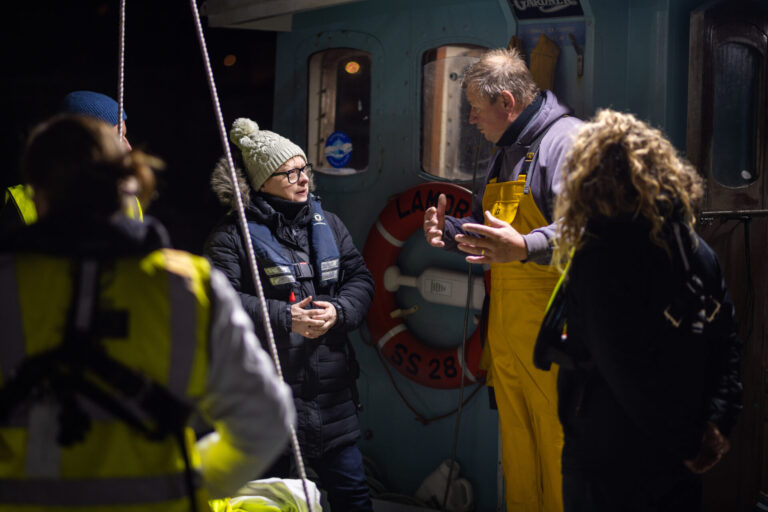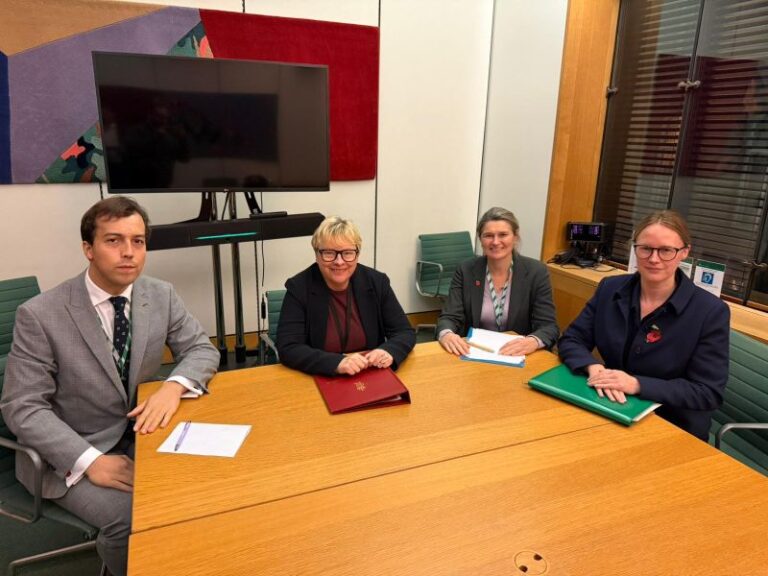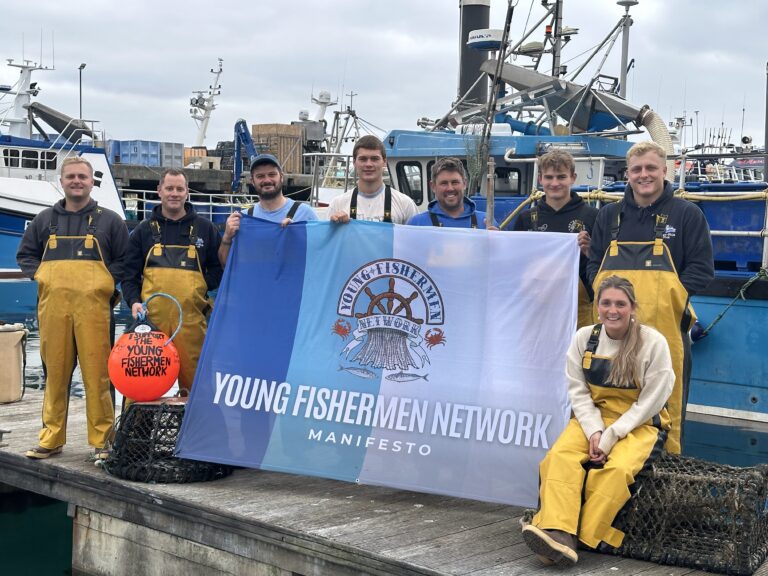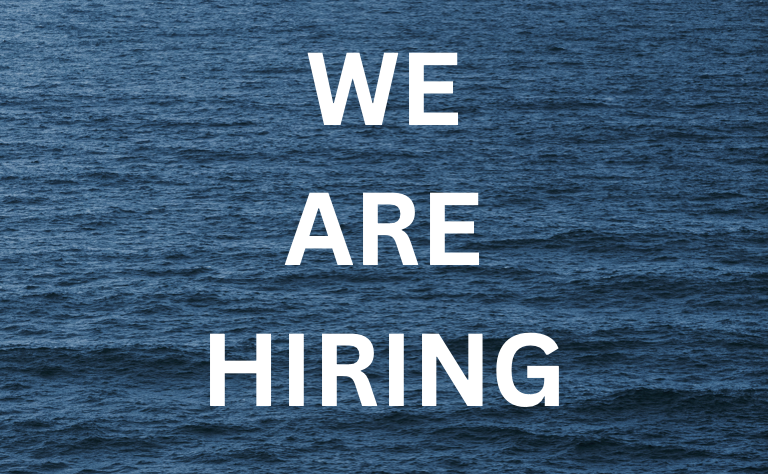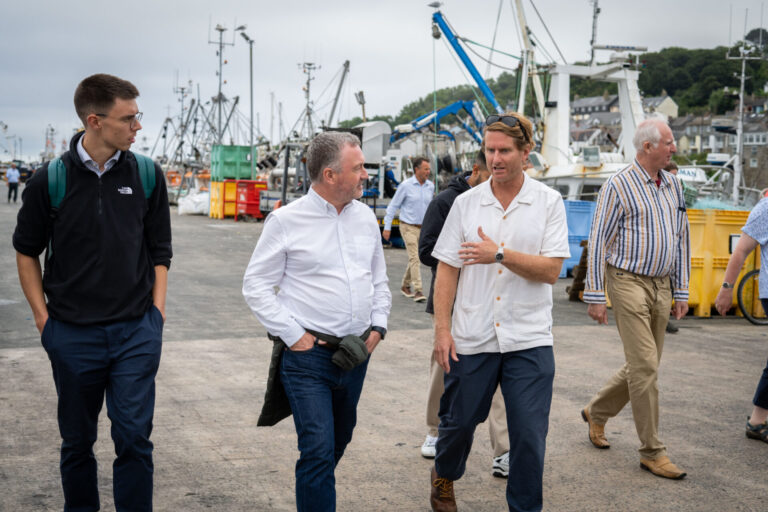A Joint Statement from the Belgian, Dutch, French, and UK Fishing Sectors on Stage 3 MPAs
Ostend, 22 July 2025
Across Europe, fisheries are integral to our coastal identity, food security, cultural heritage, and
economy. Generations of fishers have passed down their knowledge of the sea, building a resilient
sector rooted in experience, responsibility, and deep connection to the marine environment. Today,
our fishers continue this tradition not in defiance of sustainability, but in active pursuit of it.
Maintaining a healthy environment and productive fish stocks ensures fishers can keep fishing, and
that the next generation can do so too.
Wild caught fish is a healthy and vital source of protein with a lower carbon footprint than most animal
products. Yet, the very people who ensure this sustainable supply are being sidelined. Instead of
reinforcing our local, high-standard production system, these policies risk dismantling it – only to
replace it with seafood imports from countries where environmental protection, labour rights, and
traceability are far less stringent. This not only exports our environmental footprint, but also erodes
control over sustainability and transparency.
That is why we raise our collective voice against the approach proposed under Stage 3 of the Marine
Protected Areas (MPAs). These measures, presented without due consideration for socio-economic
realities, threaten not only the viability of our fishing communities, but also European food security.
Given the critical issues that are at stake for our sector, we must highlight the extremely short
consultation period, particularly in light of the number of proposed measures and the amount of
relevant documentation. As a minimum, we request a deadline extension until the 1st of November.
Fishers are not the problem, they are part of the solution. Our sector has undertaken enormous efforts
to reduce environmental impact: through gear innovations, real-time closures, effort reductions,
spatial planning, and diversified practices. These initiatives are often sector-led, driven by a shared
understanding that the health of our ocean is non-negotiable. All of this has been done within an
increasingly complex regulatory framework and under intensifying geopolitical pressures. And yet, our
fishers continue to deliver fresh, local, healthy seafood to our plates.
Now, these efforts are being punished. The management measures proposed for Stage 3 MPAs ignore
ecological nuance, local fishing practices, and existing sustainability gains. The logic behind them is
flawed: rather than aligning with clear conservation objectives, the proposals apply a one-size-fits-all
approach with little regard for actual impact. In habitat types with high resilience (e.g., coarse
sediments subject to a high tidal range), measures that completely ban towed gear confuse “pressure”
and “impact”. The social and economic harm that will result from broad-scale and indiscriminate
trawling bans are completely disproportionate to the minimal environmental benefit that may be
realised in some sites.
It is often claimed that passive fishing methods are the ecological alternative, used to justify the exclusion of active fishing from MPAs. Yet, in certain areas, even these are now being banned. The logic behind such blanket exclusions is inconsistent, even contradictory. The fact that passive gears are also banned in certain zones undermines the entire premise. A selective narrative is being applied to justify sweeping restrictions without fully assessing actual ecological impact, compatibility with conservation goals, or the socio-economic consequences for our fishing communities.
The current proposals go beyond merely assessing direct economic impact, they present an unbalanced and assumption-driven approach. While the de minimis assessment appears focused on minimising direct impacts on fishing businesses, it simultaneously adopts an overly broad interpretation of the indirect benefits of a ban. This selective framing skews the analysis and fails to capture the real-world consequences. We urge the MMO to conduct a comprehensive and evidence-based evaluation that includes the broader effects of displaced fishing effort, the cumulative impact of growing spatial restrictions, and the socio-economic repercussions. This must also include an assessment of how displacement will affect the ecological integrity of other European stocks and habitats that will experience increased pressure. We also expect the MMO to consider maritime security issues, and to propose concrete and realistic scenarios for cohabitation between uses with the fishing restrictions they envisage. We also note that, there is insufficient evidence that alternative, less harmful approaches were seriously considered in the design of these measures. This highlights the lack of transparent, science-based evaluation at the heart of this process and the lack of proportionality in the measures that are proposed.
This sectoral alliance calls for a fundamental shift: from sweeping, symbolic gestures to tailored, science-based management plans for each MPA, through a case-by-case approach. These must be developed in partnership with fishers, using site-specific ecological knowledge to determine which fishing methods can be compatible with conservation. Real protection does not come from declarations crafted for headlines or social media, but from the hard, collaborative work of reconciling nature and livelihoods.
Although climate change presents long-term challenges, the biggest risk to the survival of European fisheries comes from policy decisions made without their involvement. Despite their capacity to adapt and innovate, fishers are increasingly constrained by measures developed in isolation and applied across the sector without regard for nuance or local realities. This has led to a situation where the fishing sector is held to increasingly strict environmental standards, while other maritime industries, such as offshore wind development and coastal infrastructure, continue to expand, often with far less scrutiny. Their impact on fishing grounds and marine ecosystems is rarely addressed in a comprehensive way. Cumulative impact assessments, if conducted at all, often fail to capture the full picture of spatial competition and ecological stress. Policies are developed in silos, with fisheries expected to adapt endlessly — to shift, to move, to “just fish somewhere else.” Space at sea is not infinite, however, for many coastal communities, neither is time. If fishers continue to be treated as
an afterthought in marine spatial planning, we jeopardise not only their future, but the resilience of our coastal food systems and maritime cultures.
Area closures must be carefully considered to avoid exacerbating environmental, economic and social issues through their complex unintended consequences. Where effort is displaced; for example, vessels are pushed out of productive areas and forced to concentrate their effort in nearby zones that are often less suitable – increasing pressure on fish stocks and intensifying fishing efforts at the fleet level. This ripple effect can undermine the ecological balance across broader regions and further erode the viability of responsible fisheries. Let us not pretend there are quick fixes. Marine protection must be meaningful, proportionate, and rooted in reality. If we fail to involve those who know the sea best, like our fishers, then we risk losing not only a sector, but a centuries-old relationship with the ocean that we all rely on.
